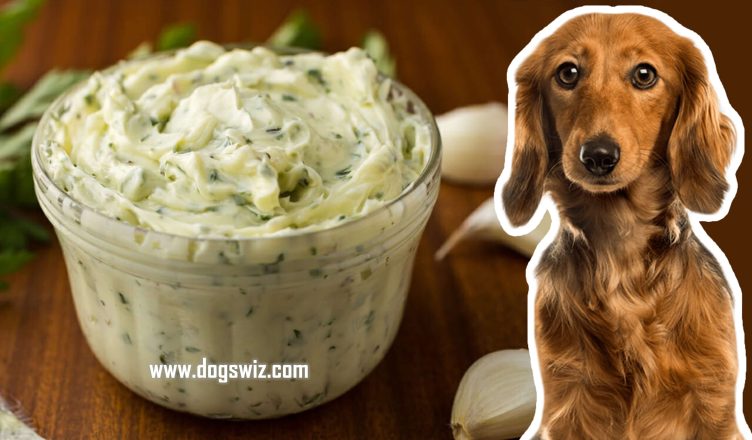In just a few short years, we’ve seen a boom of new garlic-laced products for our pets. One of them is garlic butter and it has been a popular topic among dog owners on whether or not you can feed this butter to dogs. So, what’s the answer? Can dogs eat garlic butter?
Yes, dogs can eat garlic butter but only in small amounts. Feeding too much garlic butter to dogs could result in an upset stomach. Garlic in large quantities is extremely toxic to dogs, so we highly recommend you do not feed your dog garlic butter on a regular basis.
Garlic toxicity in dogs is a condition that occurs when a dog ingests a large amount of body in comparison to their body weight. The reason why garlic is toxic to dogs is due to the presence of a compound called thiosulfate. Excess thiosulfate consumption has been linked to hemolytic anemia in dogs. Hemolytic anemia is a condition where the dogs’ body starts destroying the red blood cells faster than the formation of new blood cells in the dogs’ spleen. This leads to a shortage of red blood cells, which can cause symptoms such as weakness, pale gums, and lethargy. The dog will usually need a blood transfusion to treat this condition.
And sadly, if treatment is delayed, the dog might die.
Symptoms Of Garlic Toxicity In Dogs
While dogs might show signs of gastrointestinal upset such as vomiting and diarrhea within 24 hours, symptoms of garlic toxicity usually appear 3 to 4 days after ingestion. But every dog is an individual, so some might show immediate symptoms while others might take several weeks to show any symptoms. Some of the symptoms to look out for include:
- Vomiting
- Diarrhea
- Loss of appetite
- Abdominal pain
- Depression
- Dehydration
- Hemolytic anemia (in severe cases)
Hemolytic anemia is accompanied by the following symptoms:
- Weakness
- Pale gums
- Rapid heart rate
- Vomiting
- Diarrhea
- Pale mucous membranes
- Jaundice
- Dark-colored urine
- Lethargy
- Excessive drooling
- Tremors
- Seizure
- Coma
If you notice any of the aforementioned symptoms after your dog eats any garlic product, call your veterinarian immediately. The sooner you act, the more quickly your vet can facilitate a diagnosis and provide treatment to your dog. As long as the dog doesn’t eat a fairly large amount of garlic and treatment is not delayed too long, your dog should recover fully.
How Much Garlic Is Too Much For Dogs?
The safe amount of garlic for dogs to eat depends on the weight of the dog. The general consensus is that dogs can eat less than 5 grams of garlic per kilogram of the pooch’s body weight. Any amount over or close to 5 grams is considered toxic for dogs, so you should do your research on the amount of garlic contained in the product(s) that you are feeding to your dog. And do not feed garlic regularly to dogs – it is too risky for them to consume regularly.
Other Potential Health Issues Associated With Feeding Garlic Butter To Dogs
Other than garlic itself, garlic butter is composed of many other ingredients – so it’s not just the garlic that could potentially be detrimental to dogs, but also the ‘butter.’ Garlic butter contains a lot of fat, which could lead to a series of health problems such as obesity, heart disease, and pancreatitis. Not to mention, feeding your dog too much fat could lead to diarrhea in dogs. If a dog suffers from pancreatitis, the pancreas would become swollen and inflamed, causing a whole host of problems for the dog. So, feeding dogs with garlic butter is not a good choice – at least not regularly.
Conclusion
Dogs can eat garlic butter however it is not recommended to feed dogs garlic butter on a regular basis due to the possibility of absorption of toxic compounds such as thiosulfate. Also, feeding dogs with garlic butter regularly could lead to obesity and heart and pancreas disease (pancreatitis). So, we recommend you avoid feeding dogs with garlic butter unless it is essential for a specific reason.
Thank you for reading the article.
If you’re interested to know if dogs can eat regular butter, here’s our article ‘Can dogs eat butter?’
How often do you feed milk to your dog? Did you know about the harmful effects? Or is your dog lactose intolerant? We would love to hear from you. Please share with our community in the comment section below.
